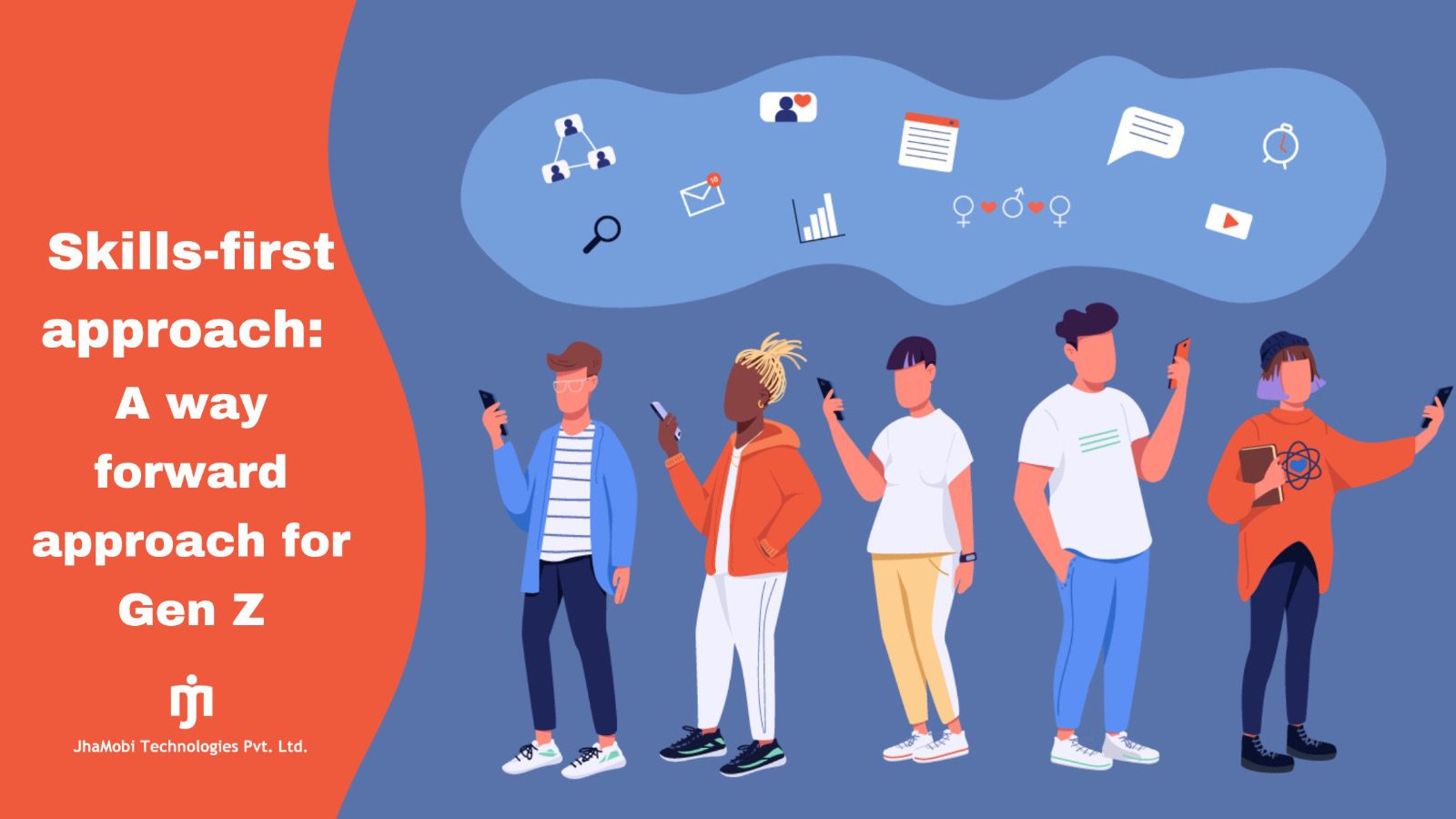
Skills play a vital role in securing employment as they demonstrate an individual’s ability to perform job-specific tasks for Gen Z generation.
In the evolving global landscape, the approach of prioritizing skills has gained momentum as the new modus operandi for scouting prospective talent. This methodology places greater emphasis on an individual’s aptitudes and proficiencies as opposed to their occupation, educational qualifications, or institutions attended.
This approach is important as it enhances employability, enabling individuals to adapt to a changing job market and increase their chances of getting hired. It fosters confidence, personal development, and a continuous learning mindset.
Younger workers are in the best position to take advantage of the skills-first future. While Skills-based hiring impacts all workers regardless of age, it makes the most difference to Gen Z. With a skills-first approach, the talent pool expands by 14 times for Gen Z, 12 times for Millennials, and 10 times for Generation X candidates.
The younger workforce is poised to benefit the most from the impending shift towards a skills-oriented future.
Younger workers like Gen Z are particularly well-positioned to capitalize on the emerging trend of prioritizing skills in the future job market. Here’s why:
1. Adaptability: Younger individuals often exhibit greater adaptability and openness to change. They have grown up in an era of rapid technological advancements and are accustomed to learning new tools and systems quickly. This makes them more receptive to acquiring and applying new skills as industries evolve.
2. Digital Natives: Growing up with technology gives younger workers a natural advantage. They tend to be comfortable with digital platforms, online collaboration tools, and emerging technologies. This familiarity allows them to easily navigate and leverage digital resources to enhance their skill sets.
3. Continuous Learning Mindset: Many younger workers recognize the importance of lifelong learning. They are more inclined to engage in continuous education, online courses, and self-improvement efforts to keep their skills relevant and up-to-date.
4. Entrepreneurial Spirit: Younger generations often possess an entrepreneurial spirit, valuing creativity and innovation. This mindset aligns well with the need to develop diverse skills that can contribute to problem-solving and the creation of new opportunities.
5. Global Perspective: With increased access to information and communication technologies, younger individuals tend to have a broader global perspective. This global awareness can be advantageous in industries that are becoming increasingly interconnected on a global scale.
6. Easier Skill Acquisition: Neuroplasticity, the brain’s ability to adapt and learn, tends to be more pronounced in younger individuals. This can make it easier for them to acquire and master new skills compared to individuals later in their careers.
7. Lower Skill Obsolescence: As industries evolve, certain skills become obsolete. Younger workers, having fewer years of experience in a specific skill set, may experience less resistance to transitioning to new skills compared to older colleagues who might be deeply entrenched in outdated practices.
8. Career Longevity: With the prospect of longer working lives, younger workers have more time to invest in developing a diverse skill portfolio. This can help them remain relevant and adaptable throughout their careers.
9. Networking Opportunities: Younger generations are often more active on social media and other networking platforms. This facilitates connecting with mentors, peers, and experts, creating opportunities for skill-sharing and knowledge exchange.
10. Eager to Prove: Younger workers are frequently motivated to prove themselves in their careers. This drive can lead them to actively seek out skill development opportunities, positioning them well for a skills-first job market.
In conclusion, younger workers like Gen Z possess a combination of attributes that align well with the skills-first future. Their adaptability, digital proficiency, continuous learning mindset, and other qualities position them to thrive in an environment where skills play a central role in professional success.
Navigating the process
How can freshers make the most of the skills-first approach?
These are a few tips:
1. It is advisable to construct a vision board and chart feasible alternatives to acquire pertinent skills.
2. Embrace a learning-oriented outlook and stay abreast of current trends.
3. Discern obstacles and fundamental proficiencies.
4. Pursue blogs and podcasts that pertain to your area of interest.
5. Examine systematic courses from reputable sources.
6. Consider the nature of the programs, whether they are free or paid, online or offline.
7. Peruse case studies.
8. Foster soft skills and industry knowledge.
9. Establish unambiguous objectives.
10. Expand your network to identify sought-after competencies.
11. Undertake projects.
JhaMobi is India’s one of the best IT skill development company.
